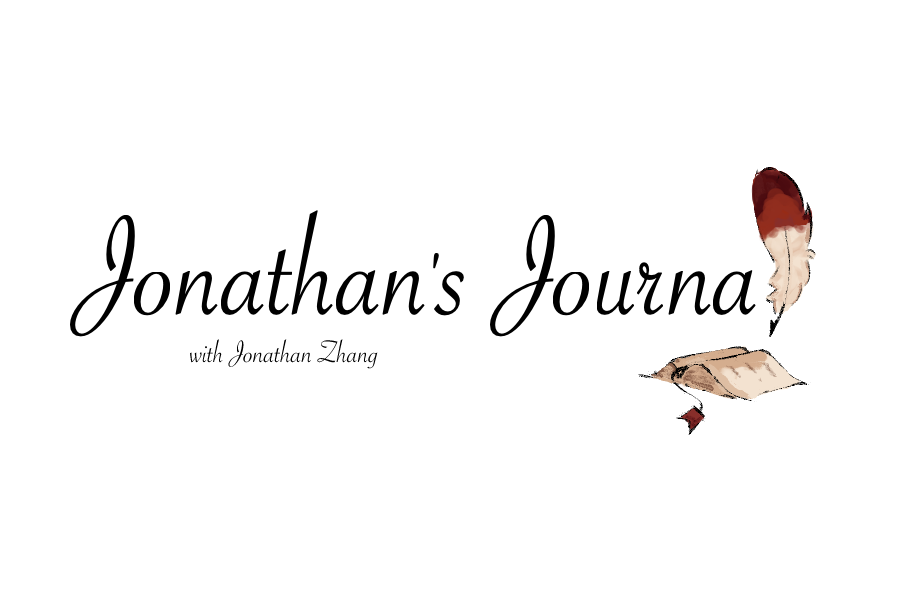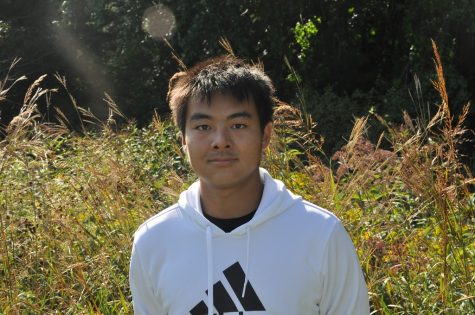Jonathan’s Journal: Finding your passion
Credit: Theo Ghosh
In the first installment of Jonathan’s Journal, reporter Jonathan Zhang discusses his journey to finding his passion for journalism and his advice for other still struggling to find a passion of their own.
September 17, 2021
I struggled with this the most over the course of my high school career: finding something I want to pursue for the rest of my life. And to be honest, I still don’t really know.
What I want to emphasize is that, in spite of all the pressure that others may put on you, developing a passion or discovering something that you enjoy doing can’t be forced. I know firsthand the pressure that comes from parents’ expectations, as well as the pressure that comes from feeling like you’re slacking just because your friends already know what they want to do in life. You can try all you like, but it’s not going to just happen. And it’s definitely not going to happen if someone else tries to force you into acquiring a passion.
My journey has been a long one. Throughout my school career, I participated in a lot of clubs like Science Olympiad, math team, debate, Model UN and many more. At the time, I hadn’t the slightest idea of what exactly I was interested in, much less what I wanted to do for the rest of my life.
I learned a lot from the time I spent in these clubs. What I liked and didn’t like became apparent to me, and I used these findings as stepping stones to slowly discover a passion.
I’d always enjoyed writing, so in the summer of my freshman year, I decided to sign up for our school’s journalism class. Looking back, that was probably one of the best things I possibly could have done.
In the class, I found myself a part of a bustling yet productive environment. It was like a beehive of people going about their business and interacting with each other almost seamlessly. Everyone had something to do, a purpose. From the different class sections that I found myself a part of, I learned new writing styles and skills. Features taught me to balance factual writing while incorporating flavor, news taught me the importance of brevity and opinion showed me the infinite possibilities of writing.
I became immersed in my job as a staff reporter. Conducting interviews led me to meet and talk to people that I otherwise might never have taken notice of, and seeing my writing published on the WSPN website only encouraged me to continue to write. After a year, I felt that I had become a constituent in the class, someone that actively contributed to the success of the publication, garnering my own accolades along the way.
However, most importantly, through my column “ABC: American Born Chinese,” I found an emotional outlet. By writing about my personal struggles, I learned to cope with my emotions and help others in the process.
Although I’m not sure if I want to pursue journalism for the rest of my life, I do know that journalism is something more than just an interest to me. It’s something that has brought me joy and acknowledgement. It introduced me to a community of other hardworking and like-minded individuals. It’s also given me an emotional outlet that I can use to help others that are struggling.
I’m not sure when I realized that journalism is a passion of mine. What I do know is that journalism is something that I’ll continue for the rest of my life in some form or the other because, at this point, I don’t think my life would be the same without it.
To those still looking for their own passions to pursue, I suggest that you focus on what you can do. Take classes that seem intriguing, participate and find a place in communities that bring you happiness. What you learn from these experiences can give you the insight you need to find what it is that you enjoy and what can lead you to your passion.





![Last Wednesday, the Wayland School Committee gathered to discuss a number of topics regarding the health curriculum and Innovation Career Pathway course. Another large topic of conversation was the ways to potentially mitigate distracting cell phone usage. "These [phones] are going to distract your learning and social relationships," Superintendent David Fleishman said. "That's concrete right there."](https://waylandstudentpress.com/wp-content/uploads/2025/06/Screenshot-2025-06-04-at-9.49.31 PM-1200x886.png)



























![Troy Hoyt finishes the Boston Marathon, running for the Hoyt Foundation. T. Hoyt is the son of Hoyt Foundation CEO Russ Hoyt.
“[Running a marathon] might seem like a big thing, when it’s presented to you at first, but if you break it up and just keep telling yourself, “Yes, you can,” you can start chipping away at it. And before you know it, you’ll be running the whole 26 miles, and you won’t even think twice about it.” T. Hoyt said.](https://waylandstudentpress.com/wp-content/uploads/2025/04/C36E8761-1CBB-452E-9DF2-543EF7B1095E_1_105_c.jpeg)













































